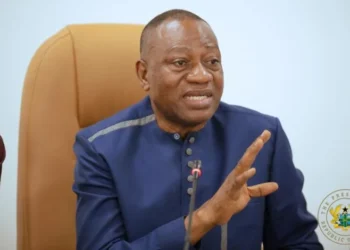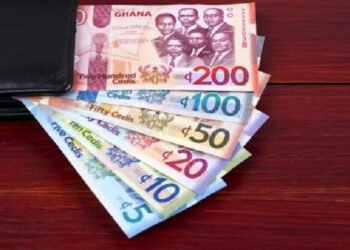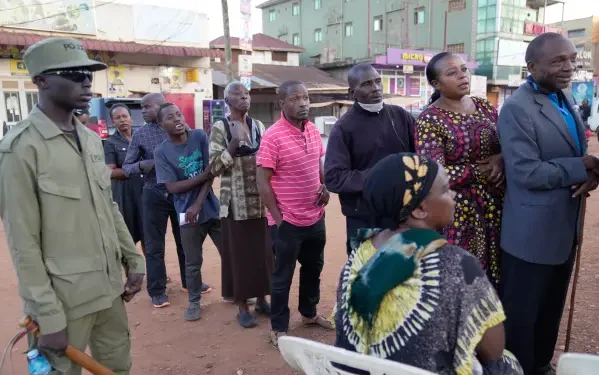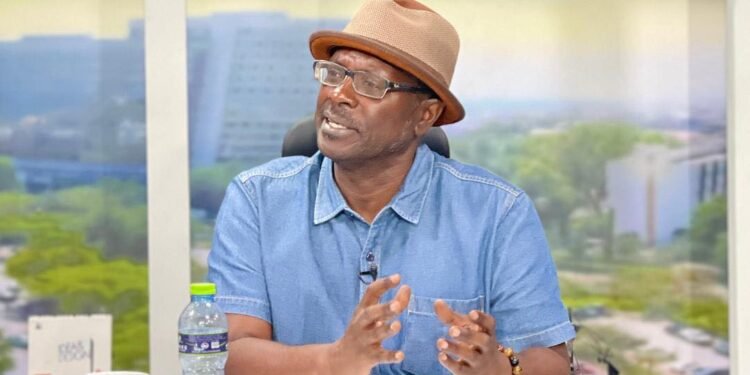Poverty is no respecter of innocence, as the United Nations Children’s Fund (UNICEF) revealed that 73 percent of children living in Ghana experienced multidimensional (MD) poverty in 2023 and commends the government’s commitment so far.
During the launch of the 2023 SDG budget and expenditure report this November, UNICEF commended Ghana for including a child-specific indicator for the first time in the SDG report. The Fund described the step as a critical milestone.
“The inclusion strengthens Ghana’s ability to channel investments toward children, a demographic still facing worrying levels of deprivation. 73 percent of Ghanaian children experience multidimensional poverty, while 28 percent face monetary poverty.”
Mr Osama Makiawi Khogali, UNICEF Country Representative
Progress Made by Ghana Through SDG
Mr Khogali lamented that the data from Ghana shows a worrying trend, where approximately 2 out of every 3 children in Ghana are multidimensionally poor.

Multidimensional poverty goes beyond income measures to assess poverty based on deficiencies in quality healthcare, education, and standard of living. This measure provides a more comprehensive image of poverty by recognising multiple disadvantages that groups, families, and households face. Such challenges include little schooling, poor nutrition, and lack of access to clean water.
Ghana has, however, performed well in its effort to solve the menace through its commitment to the SDG goals. But Mr Khogali remarks that more work is needed in addressing the poverty in Ghana.
“Ghana has made important progress, but we must be more targeted, more decisive. As we observe World Children’s Day, this report reminds us that investing in children is investing in the nation’s long-term development.”
Mr Osama Makiawi Khogali, UNICEF Country Representative
According to UNICEF, Ghana has one of the most advanced and transparent SDG accountability systems globally. Only a few countries have adopted such a detailed tracking mechanism that links budget lines directly to SDG targets, UNICEF pointed out.
“There are very few countries that have been brave enough to take this step, to really have this kind of accountability tool in place.
“It’s laudable that the Ministry of Finance is a frontrunner in this. Ghana’s data-driven approach provides a solid foundation for accelerated progress.”
Ms Paulina Sarvilahti, Chief of Social Policy and Inclusion at UNICEF Ghana
Developing a system for tracking whether resources reach the right beneficiaries position Ghana to achieve the SDG targets faster, despite global challenges ranging from economic pressures to the lingering effects of the COVID-19 pandemic.

“Overall, it’s great that we have this strong commitment from the government and that there is really a strong push towards this,” Ms Sarvilahti said.
Ghana Localised SDG Budget and Pursues 2030 Target
In strengthening its commitment to the Sustainable Development Goals (SDGs), Ghana launched the 2023 SDG Budget and Expenditure Report. The report contains an exclusive track of how the government has allocated its resources to ensure progress in health, education, social protection, and human capital development.

According to the report, Ghana has significantly increased its budgetary allocation and spending on SDG-related issues by 116.9 percent, over double increase. In 2022, Ghana spent GH¢83 billion, while in 2023, the country spent GH¢180 billion to achieve some of the SDG targets.
According to UNICEF, Ghana’s commitment is “one of the strongest financial commitments to the SDGs in the sub-region,” adding that this “investment boost reflects the government’s decision to integrate SDG financing into the national budgeting framework and ensure that development interventions are backed by real, measurable expenditures.”

Ministry of Finance Poised to Meet SDG Deadline
The Ministry of Finance is poised to meet the SDG deadline as SDG tracking has now become deeply embedded in government operations, allowing policymakers to identify gaps and adopt timely corrective measures.
“We will definitely meet the targets by the time they are due because we are working so hard as a country.”
Mr Isaac Fraikue, Director of Budget at the Ministry of Finance
He further mentioned that the history of Ghana’s commitment to ensuring inclusivity of all groups in sharing the national cake is revealed by the report. The report aims to position Ghana to create a better future for its citizens to meet the global vision.
“Developing this report is more than just tagging and tracking budgetary applications and associated expenditures. It tells the story of Ghana’s development journey, reflecting our resolve to ensure that no one is left behind whilst aligning our national priorities with a shared global vision for a better future.”
Mr Isaac Fraikue, Director of Budget at the Ministry of Finance
According to Mr Fraikue, the next phase of Ghana’s SDG financing strategy will focus on localising the SDG budget and expenditure reports, ensuring that districts and local authorities are better equipped to plan, track, and report SDG-related spending. Deeper stakeholder engagement, stronger collaboration with development partners, and the use of real-time data will guide financial decision-making going forward, he remarked.

UNICEF urged the government to further increase investment in social protection, education outcomes, and child nutrition while sustaining the transparent reporting mechanisms that have earned the country global recognition.
READ ALSO: Muslim Leader’s Meeting with President Mahama Highlights Urgent School Needs























